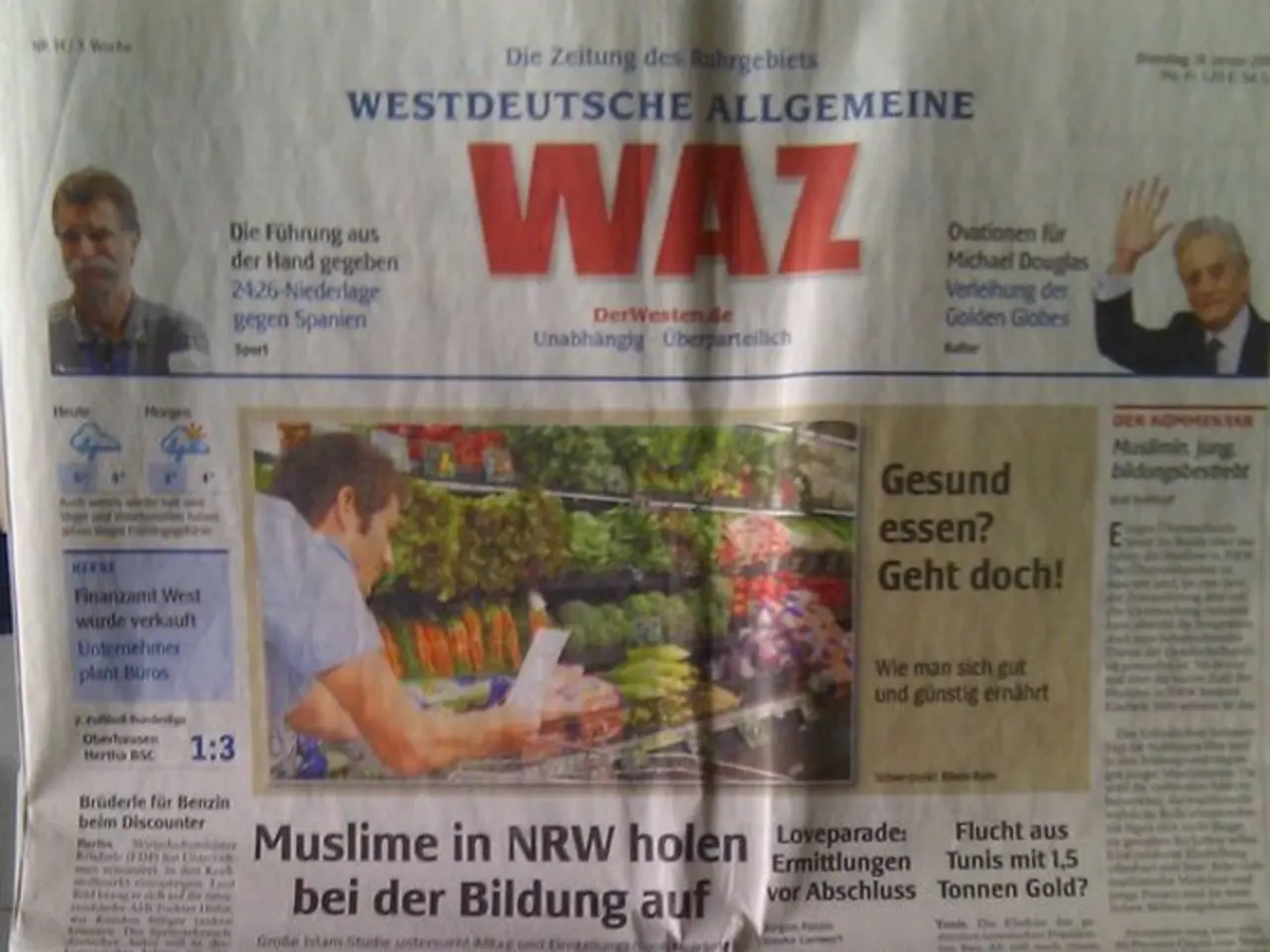Plummeting Stock Index Futures Caused by Trump's Tariffs and a Disappointing US Jobs Report
In the world of global economics, July saw a series of significant developments that have shaped the trajectory of various markets.
The Chinese Caixin Manufacturing PMI came in weaker than expected at 49.5, indicating a contraction in the manufacturing sector. This weak economic data, combined with global trade concerns, led to a downturn in China's Shanghai Composite Index. Similarly, Japan's Nikkei 225 Stock Index closed lower, dragged down by weakness in the technology sector.
Across the Pacific, the U.S. job market showed a potential weakening, with fewer nonfarm payroll additions than anticipated in July. The unemployment rate, however, edged up to 4.2% as expected.
In the realm of consumer spending, U.S. June personal spending rose by 0.3% m/m. The core PCE price index, a key inflation gauge monitored by the Fed, also came in at +0.3% m/m and +2.8% y/y. The U.S. average tariff would increase to 15.2% if the announced rates are implemented, contributing to higher inflation and creating significant uncertainty for consumers and businesses.
The impact of U.S. tariffs on Q3 2025 economic growth has been a moderate drag, lowering consumer and business confidence, increasing inflation, and reducing GDP growth projections. J.P. Morgan Global Research revised down the U.S. GDP growth forecast for 2025 to 1.6%, citing tariffs and retaliatory measures as key reasons.
The stock market shows mixed performance with tariff-impacted sectors struggling, while technology and AI-related firms provide positive momentum amid the challenging tariff environment. For instance, shares of Amazon.com (AMZN) slumped over -7% in pre-market trading due to projected weaker-than-expected Q3 operating income.
Meanwhile, Asia stock markets settled in the red today, with the Shanghai Composite Index closing down -0.37% and the Nikkei 225 Stock Index closing down -0.66%. Coinbase Global (COIN) plunged over -10% in pre-market trading due to weaker-than-expected Q2 results and weak Q3 subscription and services revenue guidance.
On the positive side, the Japanese July au Jibun Bank Manufacturing PMI stood stronger than expected at 48.9. The Eurozone's July CPI rose stronger than expected at +2.0% y/y, with the Core CPI remaining steady at +2.3% y/y. The Japanese June Unemployment Rate was in line with expectations at 2.5%.
President Trump signed an executive order imposing tariffs between 10% and 41% on U.S. imports from foreign nations, adding to the existing economic uncertainties. The future outlook remains complex, with the Federal Reserve's cautious approach to interest rate cuts and the ongoing impact of tariffs shaping the landscape of the U.S. equity market in Q3 2025.
Sources: 1. J.P. Morgan Global Research 2. Morningstar 3. Federal Reserve Bank of St. Louis 4. U.S. Bureau of Labor Statistics
- Amidst the global economic turbulence and rise in tariffs, the politics and general-news sphere is abuzz with discussions on the future consequences, as investors and businesses anxiously await the implications of these measures on crime-and-justice matters, such as increased prices leading to potential social unrest.
- Simultaneously in themathrm of general-news, recent developments in politics including the implementation of tariffs have caused a shift in the crime-and-justice landscape, as some experts predict a potential rise in white-collar crimes due to increased economic pressures and corruption, further fuelling ongoing speculations and debates within society.




